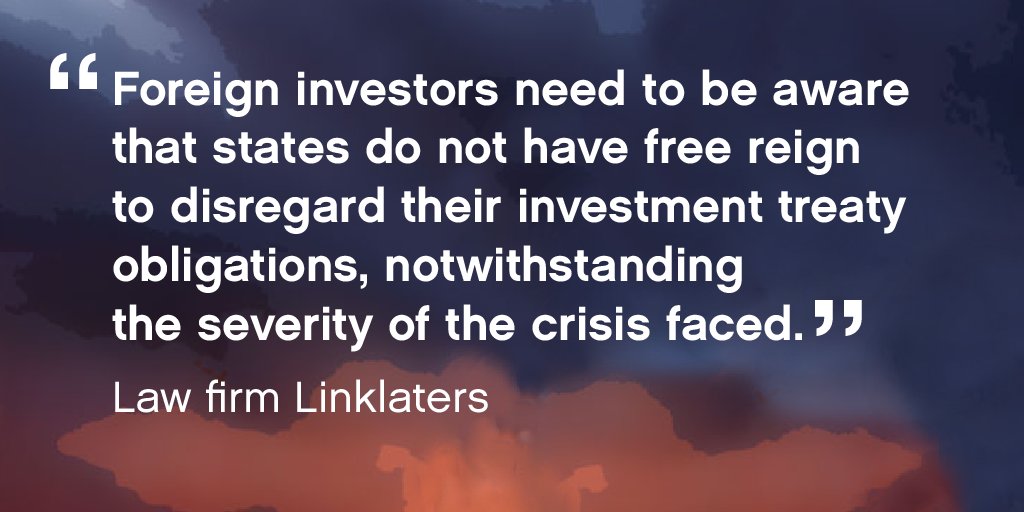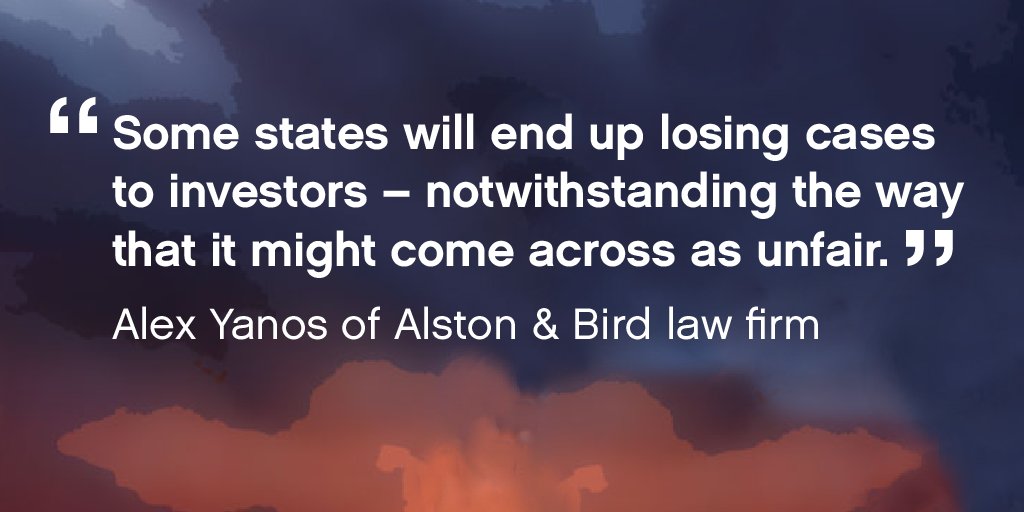
For the first time in history, the #IPCCReport has recognized the role of Free Trade Agreements and Bilateral Investment Treaties as mechanisms to delay government action for climate mitigation.
This is a huge milestone.🧵👇🏽
This is a huge milestone.🧵👇🏽
The IPCC WGIII report warns that international investment agreements have tended to protect investor rights when clashing with environmental policies.
This leads to “regulatory chill” that can delay government action, such as phasing out of fossil fuels.
This leads to “regulatory chill” that can delay government action, such as phasing out of fossil fuels.
In particular, the IPCC WGIII report explicitly acknowledges the role of the Energy Charter Treaty in hindering the energy transition.
It states that fossil-fuel companies could use investment protection to block national legislation that aims to phase out of fossil fuels.
It states that fossil-fuel companies could use investment protection to block national legislation that aims to phase out of fossil fuels.

We have been writing about the ECT since 2012.
Together with @PowerShift_eV & @corporateeurope, @ecologistas, @foeeurope and other amazing partners we made the link between trade agreements and climate policies.
This is a victory of movements coming together ✨
Together with @PowerShift_eV & @corporateeurope, @ecologistas, @foeeurope and other amazing partners we made the link between trade agreements and climate policies.
This is a victory of movements coming together ✨
The ECT protects investments in the energy sector and in particular gas, fuel and carbon.
According to @IEeurope the treaty protects 344.660 million euros in fossil fuel infrastructure in Europe.
The only way to ensure a safe exit from fossil fuels is by ending the Treaty.
According to @IEeurope the treaty protects 344.660 million euros in fossil fuel infrastructure in Europe.
The only way to ensure a safe exit from fossil fuels is by ending the Treaty.
Italy has already left the Energy Charter Treaty, and other EU member states, like Spain and France have expressed their concerns that the current modernization process is not enough.
The climate crisis won't wait 🌍
Countries need to exit the Energy Charter Treaty now and stop the expansion of the ECT to countries in Africa, Latin America and Asia.
#noECT
Read more about it here: tni.org/en/energy-char…
Countries need to exit the Energy Charter Treaty now and stop the expansion of the ECT to countries in Africa, Latin America and Asia.
#noECT
Read more about it here: tni.org/en/energy-char…
• • •
Missing some Tweet in this thread? You can try to
force a refresh













